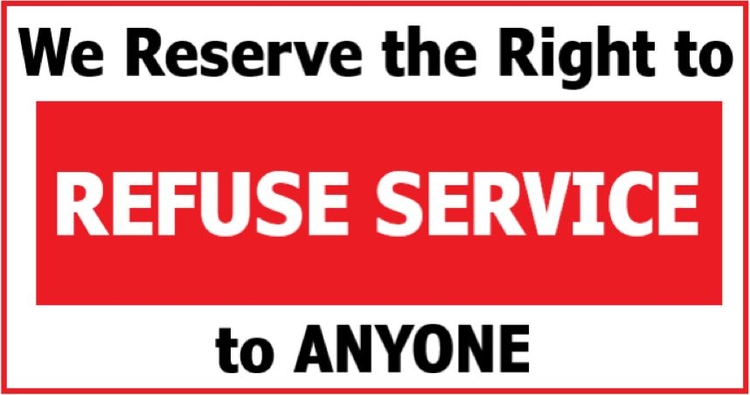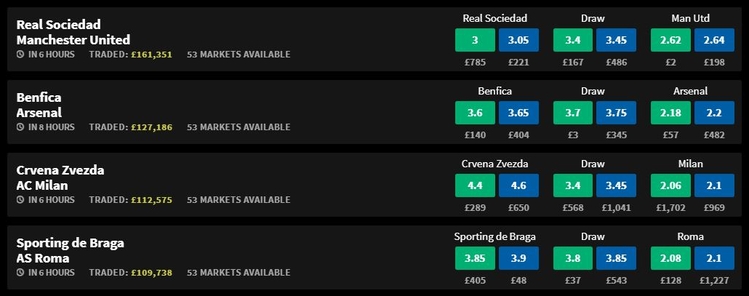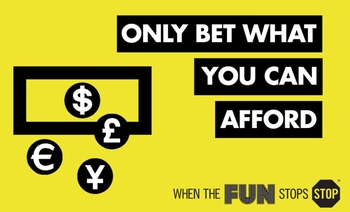Why Do Bookmakers Limit Winning Players?
As frustrating as it may be, there are times when bookmakers limit winning players. They often state they hold the power to do this in their T’s and C’s but there is no hard and fast rule as to why this happens.
We wanted to look at several reasons why a bookmaker may limit a players account and also what the player can do to avoid limitations being made.
What Does It Mean When You’re Account Has Been Limited?
 There are several ways that your account can be limited. The most common is by limiting the amount that you stake on any given market or wager.
There are several ways that your account can be limited. The most common is by limiting the amount that you stake on any given market or wager.
What you need to understand is that all bookmakers will include some sort of limits for all of their bets. This is usually based on the sport and the particular market. The more popular the sport or market, the higher these limits will be.
The reason for this is that a market that has a higher volume of bets (liquidity) is easier to balance the books on than a market with a lower volume of bets. This is because a single bet in a low liquidity market can offset it massively, whereas a larger market will not change as much.
However, these are what are known as blanket limits, meaning that they apply to all players. The bookmaker can then adjust this for individual accounts and it’s actually more common than you might think, but for different reasons.
An obvious reason for a limit on a betting account is that the player is consistently winning and usually winning large sums of money. At the end of the day, when a punter wins, the bookmaker will lose. They try to balance books to make a profit on all bets, but this is not always possible due to liquidity, as mentioned above.
For limits to come into play the numbers usually need to be higher than your average punter. Someone who is making a couple of hundred or even thousands per month is likely not going to flag too much with larger bookmakers as the numbers are small to them.
A player that is consistently winning tens of thousands is not going to go down as well given these sums of money are far more substantial.
When this happens, the bookmaker will take a look at the players betting history and the amount they are staking, as well as winning. If they decide it’s costing them too much money, they will limit the account as to how much and sometimes how often they can place a bet.
Why Don’t They Just Close the Account?
 It’s highly likely that with most bookies there will be terms that allow them to close a players account as and when they like. If a player is winning too much money, then they would be within their legal right to do so.
It’s highly likely that with most bookies there will be terms that allow them to close a players account as and when they like. If a player is winning too much money, then they would be within their legal right to do so.
The downside for the bookmaker is that when these things start to gain traction within social media and the press, they do start to lose credibility. If players were to think that a bookmaker will close their account if they win money, then they are much less likely to sign up for fear of an account and possible asset seizure as well.
By limiting the account but keeping it open, they allow the player to keep betting but limit their own exposure. It means the player still has access, they likely sidestep the impending negative media backlash for closing accounts of winning players and they also limit their own losses.
It’s also worth noting that the bookies don’t mind seeing people win money. Often when one person wins, others have lost enough to cover that and more so the bookmaker can take their cut as well.
The issues arise when it comes to unbalanced books, meaning that the bookmaker is then paying out of their own back pocket. Horse racing is a classic example of this simply because there are so many races daily and the liquidity of each race can vary massively.
If we compare a Group 1 race at Cheltenham festival with a weekly meeting at Redcar in December, then the money that comes in will be staggeringly different. Cheltenham will be getting millions wagered per race, Redcar might be getting thousands or even less than that with smaller bookmakers.
A consistent winner at smaller racecourses will be a bigger burden financially than a big winner at the larger meetings.
Is it Legal?

As we’ve mentioned, many bookmakers include within their terms and conditions that they can suspend or limit any account they choose. In fact, they don’t even need to state a reason why the account has been limited, only to set the action in motion.
Technically it is legal for a bookmaker to limit a players account. They are also able to set the terms of the limit. So, this could be a limit on the number of bets, the max stake or the type of bets that the player can make.
One of the main arguments that have made some media headlines of late is if all customers should be treated equally when it comes to limiting accounts. What has been proposed is that the bookmaker can set a line on the odds that they want to create and also the maximum amount staked at that price.
The max stake is not something that is always published, but you can access this from the T’s and C’s. Also, they have the power to limit max bets on individual markets as well. An example would be a max bet of £10 on a 100/1 long shot in a small horse race meeting.
What many bodies are suggesting is that given that the bookmaker has the ability to alter all of this to best suit them, this should be the final part of their control and then it’s up to the punter to place a bet, choosing their bet size and the frequency of how often they bet.
It’s fair to say that the bookies are covering their backs when they limit accounts, but is it fair to have one set of rules for one player and then another for a different punter?
Our view is that the rules at the minute are too favourable towards the bookmaker. They have too much power here and are cherry-picking the players and the bet types that they want. Why should one punter be able to access a certain price and then another player a different price?
 IBAS (Independent Adjudication Service) has been pioneering for a level playing field for punters for several years now. One of their biggest sectors for complaints is of account closures and account limits that have been applied.
IBAS (Independent Adjudication Service) has been pioneering for a level playing field for punters for several years now. One of their biggest sectors for complaints is of account closures and account limits that have been applied.
When it comes to limits, almost all of these have been on the back of successful runs from the punter which the bookmaker has decided that they want no part of.
The reality is that equal rights for customers are not going to be an easy rule to enforce. At the end of the day, a bookmaker is a business and if they decide they don’t want to accept someone’s business, then they are legally allowed to refuse it. It would be the same if someone was barred from their local pub for fighting, it comes down to the owner to decide if they can or cannot get access to their business based on previous actions.
What Would Happen if Bookies Weren’t Allowed to Limit Accounts?
 Let’s assume that some sort of ruling gets passed and it states that bookmakers aren’t allowed to limit players accounts. It would likely see a big change from the bookmaker, but how would this work out?
Let’s assume that some sort of ruling gets passed and it states that bookmakers aren’t allowed to limit players accounts. It would likely see a big change from the bookmaker, but how would this work out?
One thing that would almost certainly happen is the maximum bets size across the whole bookmaker would get lowered. They simply wouldn’t take the risk of a consistent winner to come in and carry on placing huge bets and making huge sums of money.
You would see a reverse of what you see now, and the player will come in under strict limits, rather than being able to bet as much as they (theoretically) can. This would be a blanket move across the whole sportsbook.
However, this would then limit the amount of money a bookmaker can make. They do need players betting large sums of money, but they need them to lose sometimes as well.
To do this, it’s possible that the bookmaker could lift the limits on players who are not as successful. This could include breakeven, losing players and even small winners, each of which getting and increase in the amount they can bet.
Whether this would be allowed by the UK Gambling Commission is another thing altogether. At this point, you would be offering players who are losing money and could be vulnerable to gambling problems the chance to lose even more money so its difficult territory.
Given how stringent the UKGC has become with problem gambling, this seems a little contradictory to everything they are trying to achieve and seems unlikely.
My Account Has Been Limited – What Can I Do?

If you find yourself in the situation that your account has been limited with a certain bookmaker, there is a good chance you aren’t going to get those accounts lifted anytime soon.
An obvious alternative would be to move to another bookmaker. However, if you have the same patterns with the same success, you’re almost certainly going to get flagged again, and then face the same issues when it comes to limited accounts.
One way that you can get around this is to move your bets to the betting exchanges. An exchange works differently to that of a traditional bookmaker in that, you bet peer to peer on the exchange and the exchange makes money by taking a percentage of the profits.
This means that an exchange would actually encourage larger bets as it means that they would get a bigger piece of the pie. Also, the bigger bets wouldn’t all necessarily be settled by the same player who is laying the bet and could come from thousands of people, meaning that it’s not just a single person that would lose if you were to win.
The negatives to this are the liquidity that’s on offer from the exchange. By liquidity, we mean the money that is either backed or laid from each player. This is limited to how much players on the platform have invested and has nothing to do with any limits that a bookmaker or in this case an exchange, has included.
For major sporting events, liquidity is often really good and bets worth tens of thousands are usually possible at favourable odds. However, for smaller events, like a small horse racing meeting, the amount of money will be limited which means that the player is limited by this as well.
Problem Gambling and Self Exclusion
 We wanted to finish off this article touching on self-exclusion and problem gambling. This is something that the UKGC have come in heavy with over the past couple of years and it can relate to winning players as much as losing players.
We wanted to finish off this article touching on self-exclusion and problem gambling. This is something that the UKGC have come in heavy with over the past couple of years and it can relate to winning players as much as losing players.
Bookmakers look long and hard at betting trends and they are required to spot problems before they escalate with all players on their site. If they think that you could be betting beyond your means, regardless if you are winning or not, then they may step in and limit your account.
This is still pretty rare for winning players, but we are almost certainly going to see an increase as the size of the fines for not spotting issues for bookmakers are now astronomical. They have also started doing affordability tests in some cases where they need to know what you earn and then it flags with your account based on what you’re betting.
Over the next decade this will be more common, so don’t be surprised to see winning accounts limited based on lifestyle and earning potential outside of gambling.
